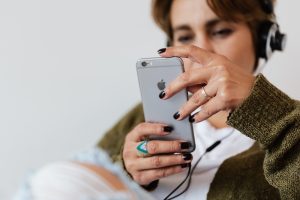Americans are increasingly tethered to their smartphones, checking them over 100 times a day, with a significant portion of this time devoted to social media. The allure of these platforms, driven by algorithms showcasing enticing ads and posts, has led to around 70% of Americans actively engaging in social media, with teenagers spending nearly five hours daily on these platforms. However, the consequences of such extensive social media use are becoming evident, especially among the younger demographic, with links to mental health issues, feelings of inadequacy, social comparison, and heightened rates of depression, particularly among young girls.
Research has consistently demonstrated the adverse effects of social media on mental health. Naiylah Warren, a licensed family and marriage therapist, highlighted its role in disrupting sleep, increasing stress levels, and contributing to symptoms of depression. As a response to these concerns, experts have advocated for reduced social media usage, associating it with lower stress, reduced anxiety and depression symptoms, and a diminished fear of missing out (FOMO). Strategies recommended include setting screen time limits, engaging in in-person hobbies, and even considering complete abstinence from social media.
However, the impact of a total hiatus from social media and the addictive nature of these platforms remain subjects of inconsistent findings. A recent study conducted by researchers from Durham University in the U.K. aimed to shed light on the effects of a one-week social media break. The study, conducted in 2022, involved 51 participants aged 18 to 25, all daily users of at least one social media app with screen time tracking enabled on their phones. Participants committed to abstaining from social media for a week and provided daily assessments of their emotions, including loneliness, boredom, sadness, happiness, and feelings about social media.
While the participants significantly reduced their daily social media screen time from almost two hours to 53 minutes, a substantial majority—86.5%—could not stay off social media for the entire week. The study suggests that this partial compliance might indicate withdrawal symptoms akin to addiction. Nevertheless, the reduction in social media usage did not result in increased or decreased cravings for these platforms.
The hiatus led to a decrease in negative emotions like loneliness, attributed to a reduction in FOMO and social comparison. Conversely, the break also decreased positive emotions, likely due to the absence of the dopamine boost associated with social media engagement. The nuanced results indicate the influence of social media on mood in both positive and negative ways, prompting discussions on the appropriate extent and timing of social media engagement.
The researchers propose considering the "Goldilocks" principle, suggesting that a moderate amount of social media use may be beneficial for mental well-being. They acknowledge the limitations of their study, calling for further research into the longer-term effects of social media abstinence on a broader range of users.




















